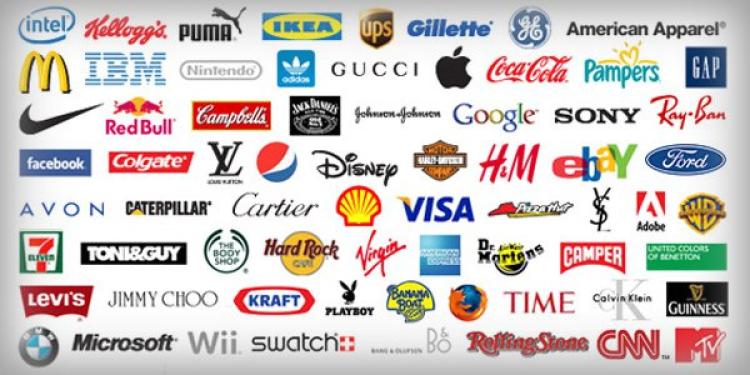New British Gambling Laws Could Have a Negative Impact on Sports Sponsorships
Posted: November 7, 2014
Updated: June 4, 2017

The UK Gambling Commission has issued new rules that could have a negative impact on shirt sponsorship deals closed between English and Scottish sports clubs and offshore operators.
As a gambling law specialist working for Pinsent Masons, Susan Biddle pointed out a few issues regarding the UK Gambling Commission’s new guidance on advertising and sports sponsorship deals, and questioned the legal basis for some of these decisions.
Nick Tofiluk, head of regulatory operations at the Commission, recently sent out a letter telling sports clubs and bodies that they now have an obligation to ensure that their unlicensed offshore partners block British consumers from their websites.
At the same time, teams have to make it clear to UK players that they cannot in fact access the advertised services.
Sponsorship deals need rethinking
The following betting brands have sponsored soccer teams:
• bwin.com
• Genting casino
• Betfred
• GunnersGaming
• Bet Butler
• 188bet
The new British gambling laws have only just come into force this month, but experts have already started to voice concerns. The UK Government’s plan to earn more through license fees and additional taxes on gambling revenue is beginning to affect the country’s sports industry too.
In his letter sent out to British sports clubs, Nick Tofiluk wrote: “We are aware that in some cases commercial partnership arrangements (which include sponsorship) are in place between sports clubs or bodies and remote gambling operators who do not hold a Commission license.
“Those operators cannot in our view advertise their betting services without both making it clear in the product as advertised and in reality that betting is not available to those in Britain.”
Now it looks like teams whose sponsors decided to withdraw from the UK market due to the recently-added fees and taxes need to rethink their advertisement agreements. Otherwise they risk compromising their partnership deals, and losing millions of pounds in the process.
Advertised prohibitions
Under the Gambling (Licensing and Advertising) Act 2014, which came into force on November 1, it has become an offence to provide or advertise online sportsbooks in the UK unless they possess a license issued by the British regulating body. The fact that these websites are already licensed in different jurisdictions doesn’t matter.
And with sports clubs now required to make it clear that British customers cannot play on their partners’ websites “in the product as advertised”, Biddle foresees numerous “practical problems”, because the announcement regarding the prohibition becomes part of the advertisement or sponsorship itself.
“For example, would players’ shirts, replica shirts and stadium boards which carry a sponsor’s logo each have to include an asterisk to a disclaimer somewhere else on the shirt or board?” she asked.
“Such a requirement would seem in practice to mean that sponsorship or other advertising by unlicensed offshore remote gambling operators will not be possible even if as a matter of practice they can achieve 100% successful blocking of British consumers,” Biddle explained.
Sponsorships should be limited to UK-licensed firms
The UK Gambling Commission gave remote gambling operators a few months to prepare and to decide whether they want to apply for a new license or not. In an earlier statement, the regulator said businesses that advertise their services unlawfully risk being prosecuted.
Many offshore companies have filed their applications months ago and have already received approval to continue catering to UK players, but the new orders apply to betting firms that were hoping to take advantage of sponsorship deals to advertise their products on the international markets where football matches or sports events are broadcasted.
Tofiluk made it clear that sports clubs and teams that close agreements with operators who do not hold a UK license can be held liable for “the offence of unlawful advertising if they do not ensure the remote gambling activity is actually blocked to consumers in Great Britain and that this is clear to consumers”.
To avoid such problems, the gambling regulator advised teams to stick to promoting licensed companies, as it is unlikely that the authority will issue any “advertising-only” licenses to offshore betting operators.
New laws to affect EPL
According to sports law expert James Earl of Pinsent Masons, the new rules will have a significant impact on the UK sports industry, particularly on the international growth strategies of English Premier League soccer clubs. But other less popular sports like darts, cricket or snooker could suffer too.
“There is a huge international TV audience for the English Premier League and, in Asia particularly, some clubs have invested a lot of time, effort and money in growing their brand and exploiting the interest there is there in the Premier League,” Earl explained.
“This has helped them to forge commercial partnerships with businesses based in Asia, including betting companies which are not necessarily targeting their services at the British market.”
The expert added that the Commission’s guidance is not clear enough on how the information about the prohibition should be displayed.
“Clubs need to know whether the Commission will accept adverts for unlicensed offshore gambling operators on shirts or advertising hoardings, for example, if disclaimers are included in associated collateral, such as match-day programmes or on club websites,” he told Out-law.
Sports clubs are now waiting for authorities to clear things up. Once they have all the details they need, they can figure out how to approach the issue and come up with new strategies. Either way, things are about to get interesting in British sports. Let’s just hope the new rules don’t chase away British teams’ biggest sponsors.












